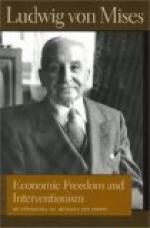|
This section contains 1,421 words (approx. 5 pages at 300 words per page) |

|
The end of history, as defined by Francis Fukuyama, an analyst at the RAND Corporation and author of The End of History and the Last Man, was the end of the conflict between the ideologies of Soviet-promoted communism and Western-style democracy, inevitably leading to “the universalization of Western liberal democracy as the final form of human government.” Western liberal democracy—characterized by free and fair elections, the rule of constitutional law, and respect for human rights—emerged from the Cold War as the only acceptable and viable form of government, in Fukuyama’s view. However, the uncontrolled spread of ethnic and nationalist conflict in many parts of the world made some people question the inevitability of the victory of democracy. In the words of Max M. Kampelman, a lawyer formerly with the Department of State, “The question may well be asked: Are...
|
This section contains 1,421 words (approx. 5 pages at 300 words per page) |

|



